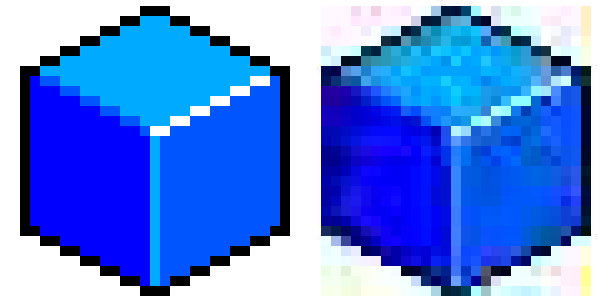What is the difference between JPG and JPEG formats?
The JIF, JPEG, and JPG file extensions more or less refer to the same thing. To understand why file formats have so many names, we need to unravel a bit of their complicated history.
What is JPEG?
JPEG stands for Joint Photographic Experts Group - the file type is named after the subcommittee that helped create the JPEG Interchange Format (JIF), first issued in 1992 by the International Organization for Standardization (ISO). .
JPEG is a 24-bit static raster image, with 8-bits in each channel of the RGB color model. This format leaves no room for an alpha channel, which means that while JPEGs can support over 16 million colors, they cannot support transparency.
When an image is saved as JPEG, some of its data is discarded in a process known as lossy compression. In turn, images take up 50 - 75% less storage space (compared to older formats like BMP) with little or no loss in image quality.
JPEG compression is based on a lossy image compression technique called DCT (Discrete Cosine Transform), first proposed by electrical engineer Nasir Ahmed in 1972.
What is JIF?
You can imagine that a JIF file is like a JPEG file in its "pureest" form. However, this format is not used much anymore because it has some annoying limitations. For example, the definitions of the color and pixel aspects of the JIF cause compatibility issues between the encoder and decoder.

Thankfully, these problems were later resolved by other "additional" standards that built on top of JIF. The first of these is the JPEG File Interchange Format (JFIF) and then the Exchangeable image file format (Exif) and the ICC color profile.
JPEG/JFIF is the most popular format today for storing and transferring photographic images on the Internet, while JPEG/Exif is a format for digital cameras and other photographic equipment. Most people don't tell the difference between these variants and simply call them JPEG.
What is JPG2 or JPF?
In 2000, the JPEG team released another image file format called JPEG 2000 (its file extensions are JPG2 and JPF). It is used to inherit JPEG, but is not popular at the present time. Even its advanced encoding method usually results in better quality images.

The JPEG 2000 file format fails for some minor reason. First, it is based on a completely new code and is therefore not backward compatible with JPEG. On top of that, processing JPEG 2000 files required more memory, which was a bit difficult to handle at the time. After all, the average computer at the time had only 64MB of memory.
JPEG 2000 has enjoyed a slight resurgence as general computer hardware has greatly improved over the past 20 years, but the file format is still very little used. The only Internet browser that supports JPEG 2000 files at the time of this writing is Safari.
What is the difference between JPEG and JPG?
Early versions of Windows (especially the MS-DOS 8.3 and FAT-16 file systems) had a maximum 3 character limit when it came to file extension lengths. JPEG must be shortened to JPG so as not to exceed the limit. Mac and Linux computers never had that, and so users will continue to save photos as JPEGs.
Popular image editing programs that work on different operating systems - such as Photoshop and GIMP - will eventually set their default JPEG file extension to JPG to reduce confusion.
And that's how the article ends up with two file extensions for the same format: JPEG and JPG. When it comes to choosing a format to save images, there is no difference between them.
JPEG vs PNG: Which is better?
JPEG and PNG were released in the same decade, and each file format addressed a different digital imaging problem facing the tech world at the time. You can see that they are compared continuously to this day. So between JPEG and PNG, which image file format is better?
Honestly, the answer depends on the type of image you're saving.
JPEGs are better suited for photos because they use lossy compression to keep file sizes at a reasonable level. Photos are large, detailed images that the subtle image distortion caused by compression goes unnoticed.
On the other hand, images with sharp points, sharp edges, and with large areas of color (eg, vector logos, pixel art, etc.) do not look good when saved as JPEG.

This is where the Portable Network Graphics (PNG) file comes into play. Developed by the PNG development team 4 years after the release of JPEG, PNG supports lossless data compression. Therefore, PNG is often used if image quality needs to be preserved and file size is not an issue.